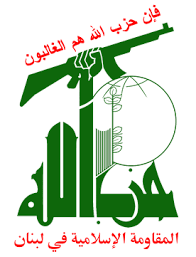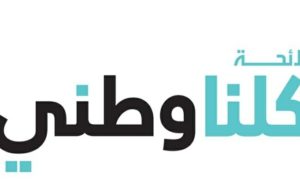#Lebanon civil society faces far stiffer opposition today than anything the embattled Syrians could mount in 2005, notes Shlomo Ben-Ami @ProSyn https://t.co/JEgTq79GFQ
— Democracy Digest (@demdigest) August 11, 2020
If the United States lets France take the lead in the wake of the Beirut bomb blast and Prime Minister Hassan Diab’s resignation, Lebanon’s people will get more political paralysis, cosmetic reforms, and Hezbollah control of state institutions, a leading observer suggests.

Hezbollah
Wikipedia
Although it is too early to tell if the ammonium nitrate belonged to Hezbollah (right), there are many factors suggesting the group is responsible. It has control over a major part of the port, including the area where the explosion took place and where Hezbollah had temporarily stored its missiles since approximately 2008, writes Hanin Ghaddar, the Friedmann Fellow in The Washington Institute’s Geduld Program on Arab Politics.
The Beirut port explosion is likely to go down in history as a turning point in Lebanon’s political configuration, argues analyst Rami Khouri. The country is experiencing the same dynamics as other Arab states have since 2010: the irresistible force of an enraged and pauperised citizenry marching in the streets to bring down a power structure that refuses to budge.
But Lebanon’s power structure is unlike any other Arab country’s and it is even more difficult to challenge. Hezbollah represents something very different. It is more powerful than the state militarily, and more cohesive than any other single sectarian organisation, he writes for Al Jazeera. So the big challenge for the protesters and all Lebanese now is: can the citizenry and Hezbollah work out a compromise agreement that allows a serious, capable government to assume power for a long transitional period that can start the revival of the country, while keeping Hezbollah’s arms off the negotiating table for now? Khouri asserts.
 Sami Atallah, director of the Lebanese Center for Policy Studies, a prominent think-tank, doubts that the government resignations would usher in the political and social reforms Lebanese are demanding unless an effective transitional administration were to be appointed, the FT reports.
Sami Atallah, director of the Lebanese Center for Policy Studies, a prominent think-tank, doubts that the government resignations would usher in the political and social reforms Lebanese are demanding unless an effective transitional administration were to be appointed, the FT reports.
“This clientelistic and sectarian system breeds corruption and incompetence,” he said, adding that Lebanon’s old guard was “trying to throw the blame on this government and let it take the fall . . . so they distract the blame from them or their cronies”.
Stand up to the zaims

Credit: NDI
To rebuild the state, we need to have a transitional government not only composed of competent people but with a vision of how to deal with the overlapping political, economic and social crises. It must have legislative authority lest it becomes hostage to the failed political parties in parliament, the LCPS argues in its must-read assessment of the crisis:
While this is necessary, it is not sufficient. People must continue organizing and rebuilding their syndicates and unions as they are key pillars for any democratic society. More fundamentally, people need to overcome their fear of the political class, the zaims, and their thugs who have treated them as clients and not as citizens with rights. More people must have the courage to stand up to the corrupt elite who are not only the obstacles to the building of the state but they are the source of our misery and impoverishment. There is no other way.
Critics of Lebanon’s power-sharing system say it has precluded the establishment of an effective, central state as former warlords and sectarian leaders are too often driven by regional agendas and self-interest, adds Reuters.
 The main parties dominating Lebanon – Sunni, Shi’ite, Druze and Christian – have all carved out spheres of influence in the state which they have exploited to their own end, while blaming each other for the mess. The most powerful is the heavily armed, Iran-backed Shi’ite Hezbollah movement, which the United States has labelled a terrorist organisation and deems a global threat. The group is today more deeply involved in state affairs than ever, it notes in a Special Report: Lebanon’s Power Struggle – Why a Failing State Can’t Get the Lights On.
The main parties dominating Lebanon – Sunni, Shi’ite, Druze and Christian – have all carved out spheres of influence in the state which they have exploited to their own end, while blaming each other for the mess. The most powerful is the heavily armed, Iran-backed Shi’ite Hezbollah movement, which the United States has labelled a terrorist organisation and deems a global threat. The group is today more deeply involved in state affairs than ever, it notes in a Special Report: Lebanon’s Power Struggle – Why a Failing State Can’t Get the Lights On.
Lebanon’s vibrant and well-developed civil society has forced change before. After Rafik Hariri’s assassination, the Cedar Revolution – a series of demonstrations under the motto of “freedom, sovereignty, and independence” – forced the withdrawal of Syrian troops from Lebanon, notes Shlomo Ben-Ami, . But Lebanese civil society faces far stiffer opposition today than anything the embattled Syrians could mount in 2005, he writes for Project Syndicate:
Over the last 15 years, Iran has spent lavishly to turn Lebanon into its strategic playground. As a result, Hezbollah is more powerful, and Lebanon more subservient to external powers – including Iran, Syria, and Russia – than ever. These powers will not sit back and allow a reform of the political system that has made Lebanon such a crucial link in their regional strategy, even at the price of turning the country into another Libya. Far from a new Cedar Revolution, efforts to push reform could lead to a conflict much like the civil war of 1975-90, in which foreign powers and rival local militias join forces and tear Lebanon apart.
 Diab is out. Hezbollah is still there. The protesters may be angry but they won’t have much influence, analyst Seth J. Frantzman writes for The Jerusalem Post. There’s no evidence that a new prime minister, a new health minister supported by Hezbollah, will do more than the last one. Given the realities of Lebanese politics where sectarian parties, many run by powerful families, control everything, the chance of change is slim.
Diab is out. Hezbollah is still there. The protesters may be angry but they won’t have much influence, analyst Seth J. Frantzman writes for The Jerusalem Post. There’s no evidence that a new prime minister, a new health minister supported by Hezbollah, will do more than the last one. Given the realities of Lebanese politics where sectarian parties, many run by powerful families, control everything, the chance of change is slim.
Even before the smouldering embers have been extinguished beside the dock, which has been described sarcastically as the “Cave of Ali Baba and the 40 Thieves” because of the rampant corruption, Hezbollah-aligned Lebanese President Michel Aoun and Hezbollah secretary-general Hassan Nasrallah have tried to blindside the people with outrageous claims, analyst Jamal Rifi writes for The Australian. Among them is that the explosions were caused by a bomb or a missile fired, they say, by a malevolent force. But where is the evidence?

You Tube
Faysal Itani, a political analyst and deputy director of the Centre for Global Policy at Georgetown University, wrote that the port, like other aspects of Lebanese society, suffers from “a pervasive culture of negligence, petty corruption and blame-shifting”.
There are several things the U.S. government can do to give the Lebanese a chance to create a new political system in which Hezbollah is cut down to size, says The Washington Institute’s Ghaddar:
- First, it must grasp that this is a 2005 moment….Lebanon’s people are demanding a total replacement of the system—a new kind of Taif Agreement, the accord negotiated in Saudi Arabia in September 1989 to provide “the basis for the ending of the civil war and the return to political normalcy in Lebanon.” Today, the tragedy in Lebanon requires a new agreement that would lead to real change and an end of the sectarian system.
- Second, Washington should make sure that humanitarian aid does not go through any state institutions, including the Lebanese Armed Forces (LAF). The United States has been assisting the LAF since 2006 for clear security objectives, but the LAF in turn has used brutal force against protesters during the recent demonstrations. …
-

You Tube
Third, the United States and its allies must push for an independent and transparent investigation of Lebanon’s port explosion. If the U.S. policy is to contain Iran and its proxies, then this is a golden opportunity. Holding Hezbollah accountable for perhaps killing hundreds of Lebanese and injuring thousands could push the Lebanese people—and Western public opinion in general—to reject Hezbollah’s grip on the country.
- Fourth, there must be an investigation into the LAF’s use of violence against protesters. The 2005 Cedar Revolution happened because the army’s leadership took a decision to protect the protesters, who were peaceful. The army today seems to have decided to protect the authorities and punish the victims. The U.S. government needs to send a clear message to the LAF that if it does not protect the protesters as they did in 2005, assistance will stop.
- Finally, the U.S. government should take the lead in pushing for genuine change rather than following Macron’s lead. The French president might be satisfied with a national unity government. However, this idea reminds the Lebanese people of the first national unity government that was forced on the Lebanese after the events of May 2008.
Lebanon has reportedly rejected offers of aid from neighboring Israel, shortly after two US senators introduced bipartisan legislation aimed at promoting normalized relations between Israel and Arab countries.
New Jersey Senator Cory Booker, a Democrat, and Ohio Senator Rob Portman, a Republican, unveiled a bill Thursday that would require the State Department to publish an annual report on the mistreatment of Arab citizens who violate their county’s anti-normalization laws regarding Israel, The Times of Israel reports.
“Civil society has always been the ‘missing piece’ in efforts to forge a just and lasting peace in our region,” said Mostafa El-Dessouki, a co-founder and director of the Arab Council. “Civil society has always been the ‘missing piece’ in efforts to forge a just and lasting peace in our region,” said Mostafa El-Dessouki, a co-founder and director of the Arab Council.







